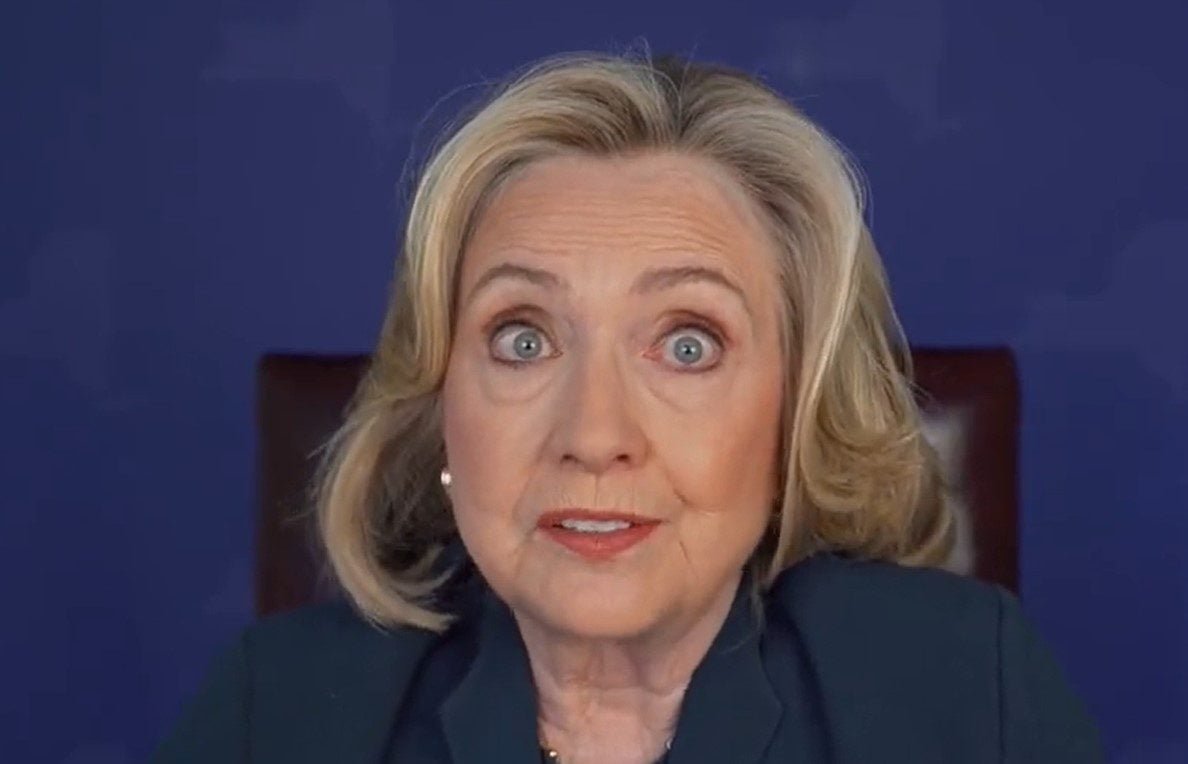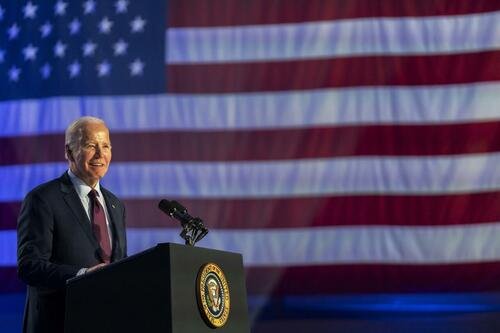
The Washington D.C. Circuit Court of Appeals ruled Tuesday that the 2016 Hillary Clinton campaign and an affiliated super PAC violated federal election law in spending that totaled close to $6 million.
The amount in question is more than 45 times the $130,000 a Manhattan court convicted former President Donald Trump of misreporting in business records during the same 2016 campaign.
It should be noted that the Federal Election Commission and the Justice Department looked at the payments Trump made through his personal attorney at the time, Michael Cohen, to adult film star Stormy Daniels as part of a nondisclosure agreement and declined to prosecute him.
But Democrat Manhattan District Attorney Alvin Bragg chose to bring the case under New York law, bootstrapping the alleged FEC violation as an underlying crime to the state business record violations.
The reimbursement payments made to Cohen were listed by the Trump organization as legal expenses. Bragg argued these payments made to Daniels initially by Cohen amounted to an illegal contribution to the Trump campaign.
Regarding the Clinton campaign case, the D.C. Circuit found the super PAC Correct the Record “set out to engage in a wide range of coordinated activities to support Hillary Clinton’s 2016 presidential campaign.”
“In an administrative complaint filed with the Federal Election Commission, nonprofit watchdog Campaign Legal Center alleges that Correct the Record spent close to $6 million in coordination with the Clinton campaign during the lead-up to the 2016 election, including to conduct polls, hire teams of round-the-clock factcheckers, and connect Clinton media surrogates with radio and television news outlets,” the Court said.
The three-judge panel noted that Correct the Record coordinated all these activities with Clinton’s campaign.
“But it characterized all of the committee’s myriad expenditures — from staff salaries and travel expenses to the cost of commissioning polls and renting offices — as ‘inputs’ to unpaid communications over the internet. For that reason, neither Correct the Record nor the Clinton campaign designated any of Correct the Record’s expenditures as contributions to the campaign,” the ruling said.
In other words, Correct the Record committed FEC “business record” violations, if you will, by failing to properly account for money spent to help the Clinton campaign.
The FEC had dismissed the complaint against the Clinton campaign and Correct the Record, citing an internet exemption had allowed them not to list the coordination between the two, but the D.C. Circuit Court found that decision was in error.
“We hold that the Commission acted contrary to law in dismissing the complaint. Because we conclude that the internet exemption cannot be read to exempt from disclosure those expenditures that are only tangentially related to an eventual internet message or post, the Commission’s reading of the internet exemption stretches it beyond lawful limits,” the ruling read.
“As to those expenditures that it deemed not to be covered by the internet exemption, the Commission acted contrary to law in dismissing the complaint for want of reason to believe the relevant expenditures were coordinated with the campaign, despite plausible allegations that Correct the Record coordinated all its expenditures with Hillary for America — and openly acknowledged doing so.”
They upheld a federal district court’s ruling concluding the same and directed the FEC to conform its findings consistent with the judge’s decision.
In a separate matter, the Clinton campaign and the Democratic National Committee agreed in 2022 to pay $113,000 to settle an FEC investigation into alleged violations of campaign finance law in relation to funding the infamous Steele dossier during the 2016 race, according to the Associated Press.
“The Clinton campaign hired Perkins Coie, which then hired Fusion GPS, a research and intelligence firm, to conduct opposition research on Republican candidate Donald Trump’s ties to Russia. But on FEC forms, the Clinton campaign classified the spending as legal services,” the AP said.
That’s interesting, because that’s exactly the violation Bragg said the Trump Organization committed in relation to paying Cohen.
The initial complaint, according to the AP, charged that “[b]y intentionally obscuring their payments through Perkins Coie and failing to publicly disclose the true purpose of those payments,” the campaign and DNC “were able to avoid publicly reporting on their statutorily required FEC disclosure forms the fact that they were paying Fusion GPS to perform opposition research on Trump with the intent of influencing the outcome of the 2016 presidential election.”
“The Clinton campaign and DNC had argued that the payments had been described accurately, but agreed, according to the documents, to settle without conceding to avoid further legal costs,” the news outlet noted.
Trump made the same point in relation to the payment for Cohen, but on stronger grounds. Cohen was his personal attorney at the time and in addition to paying the lawyer’s fees, the money had gone to reimburse him for funds paid to Daniels as part of a non-disclosure agreement, i.e., a contract.
How else was the Trump Organization accountant supposed to list the payment?
So Clinton and the DNC pay an FEC administrative fine and the matter is done with, but Trump has to go through a six-week criminal trial and faces potential jail time.
And Democrats wonder why they’re accused of overseeing a two-tiered system of justice.
This article appeared originally on The Western Journal.







